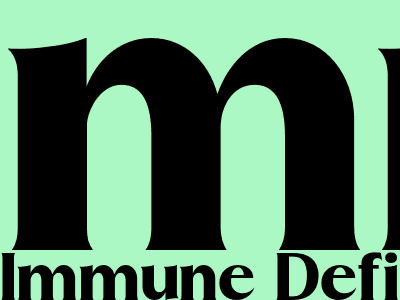What is Primary Immunodeficiency?
Introduction
Primary immunodeficiency (PI) is a rare, chronic condition caused by a genetic defect that weakens the immune system's ability to fight infections. The immune system is a complex network of cells, proteins, tissues, and organs that work together to defend the body from harmful invaders such as bacteria, viruses, and fungi. People with PI are more susceptible to infections, and their infections can be more severe and difficult to treat compared to people with healthy immune systems.
Types of Primary Immunodeficiency
There are over 150 different types of PI, each with its own unique genetic cause. Some of the most common types of PI include:
- Severe combined immunodeficiency (SCID): This is a life-threatening condition in which the body is unable to produce enough T cells and B cells, which are critical for fighting infection.
- X-linked agammaglobulinemia (XLA): This is a condition in which the body is unable to produce antibodies, which are proteins that help the immune system recognize and destroy harmful invaders.
- Common variable immunodeficiency (CVID): This is a condition in which the body produces low levels of antibodies, which can lead to recurrent infections.
- IgG subclass deficiency: This is a condition in which the body produces low levels of specific types of antibodies, which can lead to recurrent infections of the sinuses, lungs, and ears.
Symptoms of Primary Immunodeficiency
The symptoms of PI can vary depending on the type of PI and the severity of the condition. Some of the most common symptoms of PI include:
- Recurrent infections, such as pneumonia, ear infections, and skin infections
- Chronic diarrhea
- Delayed growth and development
- Autoimmune disorders
- Allergies
- Eczema
- Fatigue
- Swelling of the lymph nodes, spleen, and liver
Diagnosis of Primary Immunodeficiency
PI is diagnosed through a combination of medical history, physical examination, and laboratory tests. Blood tests can measure the levels of antibodies and other immune system components, and genetic testing can identify the specific genetic defect that is causing the PI.
Treatment of Primary Immunodeficiency
The treatment for PI depends on the type of PI and the severity of the condition. Some of the most common treatments for PI include:
- Antibody replacement therapy: This involves receiving regular infusions of antibodies to help the immune system fight infection.
- Intravenous immunoglobulin (IVIG): This is a type of antibody replacement therapy that is given intravenously.
- Subcutaneous immunoglobulin (SCIG): This is a type of antibody replacement therapy that is given subcutaneously.
- Antibiotics: These are medications that are used to treat and prevent infections.
- Hematopoietic stem cell transplant (HSCT): This is a procedure in which the patient receives healthy stem cells from a donor.
Prognosis of Primary Immunodeficiency
The prognosis for PI varies depending on the type of PI and the severity of the condition. With early diagnosis and treatment, many people with PI can live full and active lives. However, some types of PI can be life-threatening, and even with treatment, the prognosis can be poor.
Support for People with Primary Immunodeficiency
There are a number of organizations that provide support to people with PI and their families. These organizations can provide information about PI, support groups, and financial assistance.

Komentar